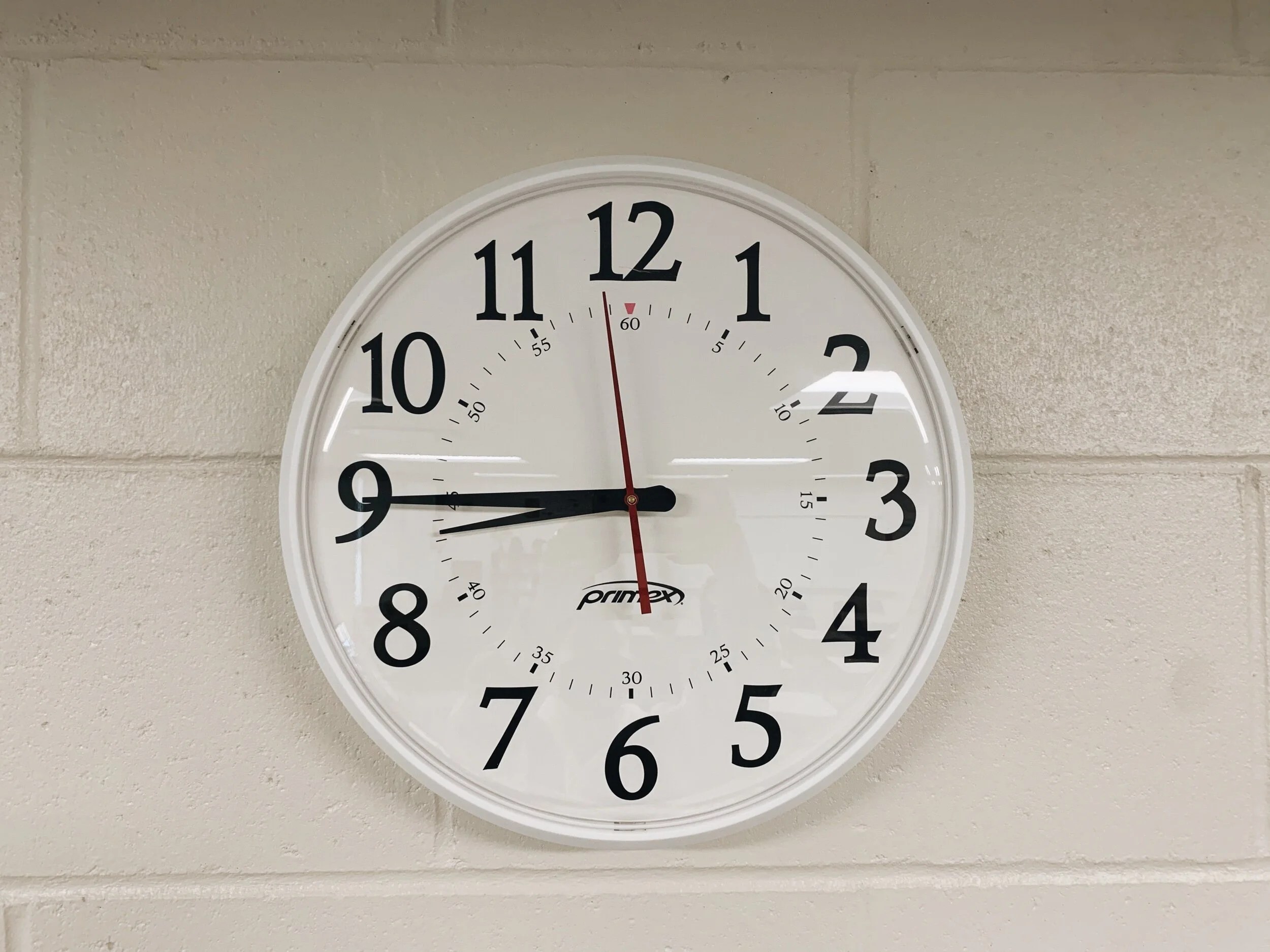How Different AP Classes Prepared for Exams
Photo from The College Board.
Delphine Ackaouy and Maddie Holtzen
“Effective reviewing is ‘refreshing’ your knowledge,” explains AP United States History and AP Human Geography teacher Mr. Pechanach, “If they did it the right way, all of that knowledge is rattling around in their brains somewhere. The job of review is to bring it all back to the surface.” The first week in May is infamous among high school students for Advanced Placement (AP) testing. If students receive above a 3 out of 5, they qualify for college credit, making these exams stressful for students across the country. However, there are many ways to create a less stressful and positive outcome from these exams. Diligence and accountability are crucial throughout the year, but as the calendar hits May here are what students and teachers suggest you do looking ahead to next year’s AP testing weeks to prepare for AP exams:
AP Language and Composition is a “skills-based test, so there’s not a lot of ‘cramming’ students can do to prepare,” says teacher Mrs. Kowalske. All preparation for the test on May 9 begins in September as students complete on-demand essays that will appear on the exam. The test consists of 45 multiple choice questions in 60 minutes as well as three on demand essays in 2 hours and 15 minutes. To prepare for the exam, students are encouraged to review old essay prompts in order to familiarize themselves with the material. Mrs. Kowalske also urges students to individually test their multiple choice skills through assignments on AP Classroom.
AP Calculus is also a skill-based exam that requires students to commit to studying in September. Mr. Wunschel, AP Calc teacher, prepares students with loads of review material, such as “rainbow packets.” These packets hold 14-15 free response questions that allow students to practice major topic areas. He also releases 2 practice tests and plenty of review material on his website for students to access. Students have also said going over passed tests and quizzes from the units have significantly helped recognize problem areas and improve their skills. Mr. Wunschel poses plenty of opportunities to study the material which is why 95% of students receive a 4 or 5 on the final exam.
In AP Psychology, students are encouraged to play review games to help memorize vocabulary and Psychologists. Students have also said 5-able, an AP studying website, has substantially helped them prepare for the upcoming exam. 5-able offers study guides, practice questions, and “cheat sheets.” The site also offers studying plans that can help students prepare for studying. The link to 5-able is https://fiveable.me/
For AP Biology students lots of practice is encouraged and required. In class students will complete a multitude of practice FRQs and multiple choice tests. These will help the students understand what to expect and gain the ability to complete these in the time allotted. Ms. Rezash also releases practice tests for each unit in the AP Classroom that gives students an opportunity for more review, not to mention the many in class days she has built for students to ask any questions they have or to review what students need. She also creates a section on her website filled with review opportunities and short lessons to help students with the tricky topics. Another major resource students are encouraged to use is AP Bio Penguins, a website filled with review games and videos covering topics. Also, it includes an organized calendar that tells students what to review each day until the AP test.
In AP Literature, students can expect to focus on the eight major types of questions for multiple choice. These questions range from “simple definition questions to more complex tone and style questions” according to long time AP Lit teacher Mr.Nysse. He also went on to say, “If the students can quickly identify the question type, they can apply the strategies for answering that question.” This is designed to allow the students to answer questions faster and with more efficiency. The second part of the Ap Lit exam is to write three essays, to prepare students for this they will practice all three essays numerous times. The students main goal is to evaluate and understand the essay. “The average time a reader has to evaluate an essay is three minutes. If the essay is not clear and to the point, it will not score well.” This is students' main priority when preparing for the essay portion of the exam. They will practice this and learn how to do this thoughtfully over the course of their class.
During the course of the semester in AP Government and Politics, frequent studying of Supreme Court cases and federal documents is required to be successful during the exam. One of the three FRQs requires students to compare a Supreme Court case to another, and knowing the federal documents during the argumentative essay is vital for success. To prepare, Mr. Groth has students write and memorize flashcards that hold everything one needs to know about the documents. Another key to success in AP Gov is an in-depth knowledge of civil liberties, roles of the government as well as the constitutional amendments. Students say that frequent review during and after the semester has significantly helped them. Quizlets also are great in helping students memorize the plethora of vocabulary. Another strategy used by students to prepare for the exam is Youtube review videos by Hiemlershistory. These videos cover each unit as well as all the important documents that will show up during the 55 multiple choice questions and 4 FRQs.
For students in AP Environmental Science their review will look a bit different. This class only runs in the first semester, meaning they will not be having this class during the spring semester at AP testing time. This however does not mean that they will have no review opportunities. According to Ms.Wainio, “One of my requirements in the course catalog is that students sign up with me in spring for Friday advisements.” This provides students with the opportunity to review each units, ask additional questions, and complete practice frq’s and multiple choice questions. AP Environmental students can also look out for information from Ms. Wainio on google classroom throughout the year, they can also find more practice on google classroom. This allows students to have lots of practice opportunities and be able to keep refreshing their knowledge throughout the year.
For AP Macro students they have the reverse situation that AP Environmental students do. The class only runs in the spring semester meaning they will be in the class when they take the AP test. While having this class in the spring semester does leave the classes with cramped time to learn all the information, the teachers do a great job of fitting in all the units. Since the units in this class build on each other it allows the teachers to spend less time having to explain each unit since students will remember it. Many students have also said that “Taking the AP test right after learning helped me remember more of the material.” Students will also have in class opportunities to review material with their teacher and ask any necessary questions. There is also multiple choice practice on AP classroom, as well as helpful videos. Another resource that is available and very helpful to students is Macro Learning, a youtuber who makes videos reviewing the topics and teaching the harder concepts in simple ways. All of these practice opportunities grant students the ability to understand and grasp the material in a short amount of time.
In AP Human Geography students study different human/population patterns as well as types of culture and agricultural systems around the world. Students in past years suggest purchasing the AP Human Geography book that covers everything learned. These students used the book to review topics they struggled with. Because AP HUG is a vocabulary heavy class, the book can be used to help understand the vocabulary on an application level. The book also offers practice MCQ and FRQ. Another way students suggest studying for this exam is quizlet. Premade quizlets offer students another way to memorize vocabulary that is critical for getting a 5 on the exam.
AP US History is notorious for its difficult tests and complex curriculum, but with proper preparation, a 5 is totally achievable. Mr. Pechanach, teacher of APUSH, prepares students by having them master the structure, content, and skills of the test. He teaches effective ways to succeed during the multiple choice questions as well as efficient ways to share one’s thoughts during the free response questions. He also has students create graphic organizers throughout the school year to “break down practice questions and discuss them as a class using the skills as a framework for discussion.” Mr. P uses many different strategies to review the content of APUSH including “ several general review activities we do to tie all of the eras of American history together, we review the period topics together as a class, students review their notes and study guides, and there are dozens of teachers around the country who have put review videos together.” Just like all other AP courses, cramming is not the way to go about studying, diligent review to refresh your memory is key to passing APUSH.
In an exam of 50 multiple choice questions and 5 free response questions, peer and group review is vital to success on the AP Physics test, says a former student. The student suggests that group review on tough topics helped them significantly because they are able to learn from each other. This student also suggests reviewing old free response questions given in class. The reviewing of past work helps refresh a mind on correct answers as well as see why another answer was wrong. This type of studying allows students to correct their work and learn from it rather than just let it be. Another studying strategy used was review videos. Oftentimes, AP Classroom releases videos by certified teachers, going through each unit reteaching the material. Many students across all AP classes find these videos helpful and refreshing.
For AP Chem students, review for the test will look like extensive practice of multiple choice and frqs. By completing repetitive practices students will know what to expect and will be able to “analyze the practice test to ensure understanding of why the correct answer is correct and why the distractors (for MC) are incorrect.” This allows students to develop a deeper understanding of the material and they will walk into the test with the ability to ace it.
For a class like AP micro students can also expect to have it in only the fall semester. This means that students are held accountable for their own studying to prepare for the AP test. According to AP micro teacher Mr.Bosley, “We use mainly self directed review guides that I have made that provide an overview of each chapter, links to a much more in depth overview, video lessons and practice questions with attached answers.” This allows students to have a wide variety of practice that they can complete to help review before the test. Also, it is recommended to students to complete AP Central practice tests. Students will also have the opportunity to go into Bosleys advisement to ask questions and get additional help.
While AP testing can be an intimidating and stressful process it is important to properly prepare yourself for all of your tests. With the help of your teachers you can successfully review and refresh your knowledge on these concepts and have the ability to pass these tests. In the words of long time APUSH teacher Mr.Pechanach, “Review week shouldn't be this intense week of stressful work. Students should enter review with a confident attitude of ‘I learned a ton - I got this.’ That attitude will help them be successful.”






